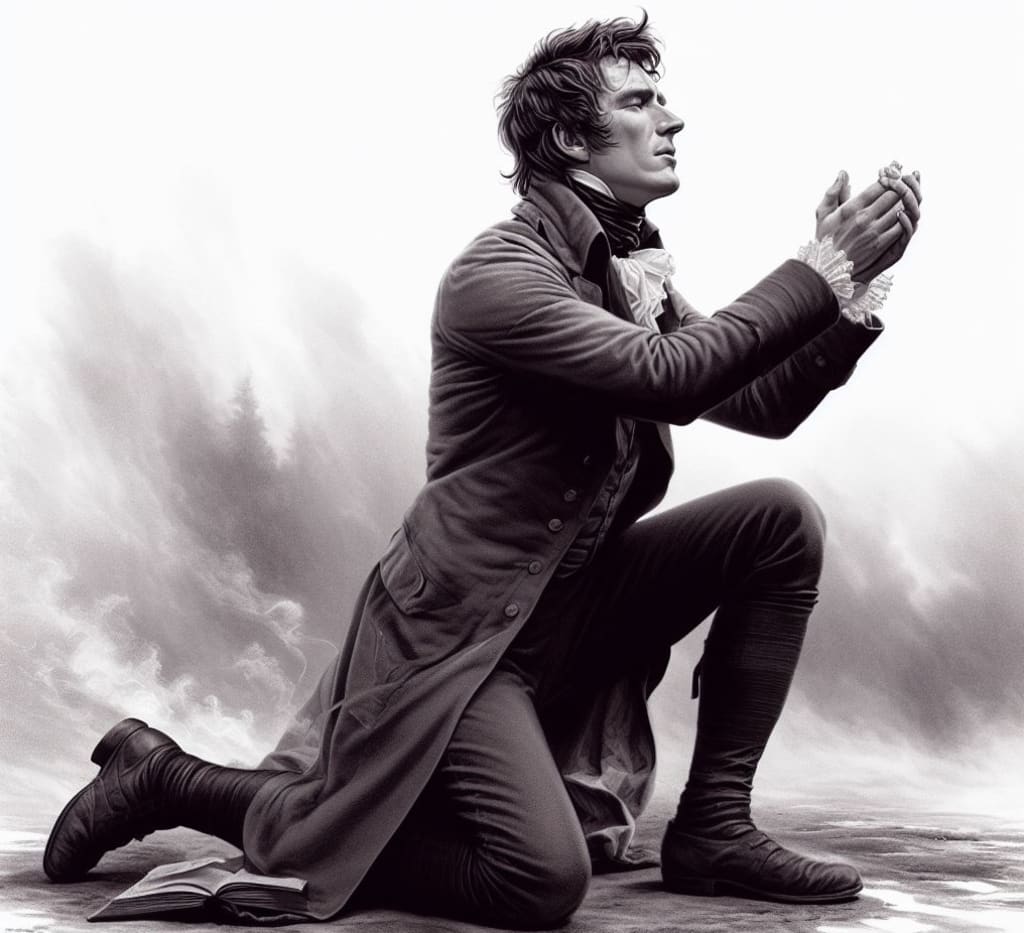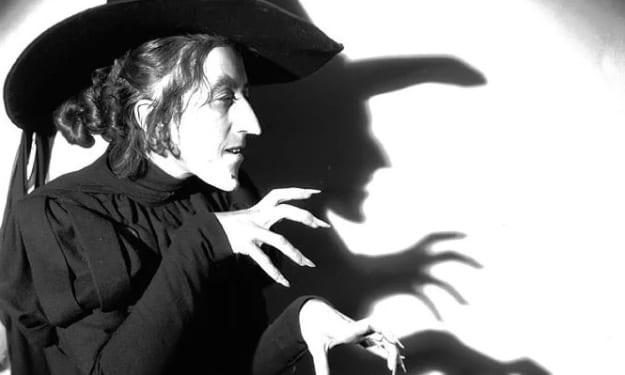Who feels the rhythm of life?
Poetry purpose and a five pound note

My relationship with poetry has always been problematic. Teachers first told me that a poem was a story that rhymed. They later told me that poetry didn't need to rhyme but then they failed to fill in the obvious knowledge gap.
Grateful thanks to Mikeydread, whose story Poetry but why led me to think about poetry and meaning. Please see links and poetry credits at the end of this article.
Since then I have read poetry that leaves me bored and unmoved. I have listened to poetry performances that make me want to thrust my fingers into my ears and leave. I have been irritated by overheard conversations about meaning and depth and been left confused and frustrated whenever I have read an English expert's explanation of how poetry works. Only among Vocal creators have I ever found any real sense spoken about poetry.
Shall I compare thee to a summer's day?
That said, I have found some poetry deeply moving, mostly of the easy-to-understand kind. Do I have a favorite poet or poem? Most definitely not, unless of course we are talking of the likes of Burns or Billy. I can even recite some of "Wee, sleekit, cowrin, tim’rous beastie..." (accent aside) and can grasp some of the meaning without the need of those patronising 'translation' texts that so often seem to accompany work by Burns. I can also recite Shakespeare, Sonnet 18, though when I do it just sounds soppy.
The owl and the pussycat went to sea in a beautiful pea-green boat. They took some honey and plenty of money, wrapped up in a five pound note.
That's the thing about poetry. We all know something about it. In a way, we all understand how it works, we can all remember some poetry or other and recite it if we feel inclined. In that respect, we are all poetry experts. More importantly, we can all dream up some poetry, sometimes, whether we think it worthy of writing down or not. Ever heard the expression "I'm a poet and didn't know it"? I am not sure how far the expression can travel from this England, or if it translates into other languages, but people sometimes say this if they inadvertently blurt out something that rhymes without intending to. Are we all poets then, without necessarily knowing it?
O! say can you see, by the dawn's early light
Remembering some poems is easy. Why? Because the rhyming pattern is a memory device first used when people had no way of recording the spoken word. The early function of rhyme was simply to help the performer to recall the narrative.
Twinkle, twinkle little star
That is why we can remember so many poems, or bits of poetry, from our infancy. Nursery rhymes, lullabies, funny little ditties in our earliest reading books.
Send him victorious, happy and glorious. Long to reign over us
So much for the power of rhyming patterns. As my primary (elementary) school teacher said, a poem doesn't have to rhyme. What, then, does it have to do? Don't ask me. I have never quite worked it out. What I have noticed however, is that poems generally have a discernible rhythm. Some more rhythmic than others. As do songs of course. Is there a difference? For that matter is there a difference between a story and a song?

Gita is the Sanskrit word for song. The Bhagavad Gita is the song of God, and is the unfolding story of the dialog between prince Arjuna and his charioteer guide Krishna, who represents Lord Vishnu. The dialog covers a wide ranging discourse on the nature and morality of war and may be taken as an allegory of the struggle for life. In this case song and story are exactly the same thing.
And The Rhythm Of Life is a powerful beat. Puts a tingle in your fingers and a tingle in your feet
Now, a song implies (to me at least) musical arrangement. Certainly stories that are sung may have been more entertaining to our ancestors who had yet to learn the gift of reading the written word. A poem, on the other hand, tends to be spoken rather than sung. So a poem is a story, like a song, that may or may not rhyme, but is spoken (or may be read) in verses like a song.
All of which leads us to the understanding that poetry links the meaning of language with the sound of language. With poems and songs, the way the words sound is vital. This may also be true of written narrative that is not poetry, or at least not intended to be. On which basis, I often play around with the sound of words as I write fictional or non-fictional stories. When I was a journalist I used to like writing headlines using alliteration. I still like using this device when I can, poetry or no.
O my Luve is like a red, red rose ~ That’s newly sprung in June
Going back to the question of rhythm, why is it important? I would suggest that, when you listen to a song or a poem, more so when you dance to music, the most important thing is the rhythm. More important than the tune because you can dance to tuneless rhythm but you cannot dance to a rhythmless tune. And if you interfere with the rhythm of a poem it just doesn't sound right. Try dropping one of the reds from "red, red rose," for instance, and reading the whole line above again, aloud.
Reading the line from Burns ~ my Luve is like a red, red rose ~ how does it sound if you say it or sing it? Something like this:
te-tum te-tum te-tum te-tum
A quick bit of web research suggests this pattern of rhythm is referred to as an iambic tetrameter. More important, why is this rhythm so effective? If you are not sure of the answer, try putting your hand over your heart or feeling your pulse after walking up a flight of stairs. Got it now? Yes, this rhythm can only have come from the way the heart beats as the muscles open and close chambers and valves within.
It don't mean a thing if it ain't got that swing
Just like playing music in 4/4 (common) time, the rhythm of A Red, Red Rose mimics the beat of the human heart. I would therefore suggest, without benefit of any profound poetic knowledge (professors of poetry please correct me if you think I am wrong), that poetry, song and music, all come directly from the heart. This can be taken literally or of course figuratively.

Shakespeare, in love, must have felt his heartbeat quicken as he thought of the boy or girl who inspired in him the feeling of a summer's day and more. This, to me, is the beauty of poetry, song, or anything not technically poetry but written with feeling and with rhythm. As a writer, I try to listen to the sound of the words I have written when I edit my work. If a word 'sounds' dull, it probably reads dull too, so I try to replace it with something a little more musical. Something with a rhythm, a heartbeat, a bit of life.

Likewise, when I am reading another author's work, I expect an element of excitement about the way it is written, even if the subject is dull. Especially if the subject is dull. My advice to anyone who is struggling to find a way to improve their writing, is to read what you have written aloud and listen to how it sounds. If it flatlines from the start, why would anyone want to read it? Add a bit of bounce. A bit of rhythm. Substitute words and phrases that sound more appealing. Listen to your heart, listen to some music, listen to some poetry.
O ~ 0 ~ o ~
Credits
In order of appearance:
- William Shakespeare, Sonnet 18, 1609
- Edward Lear, The owl and the pussycat, 1871
- Francis Scott Key, Defence of Fort McHenry, 1814
- Jane Taylor, The Star, 1806
- UK National anthem, origins disputed
- Cy Coleman and Dorothy Fields, The Rhythm Of Life, 1966
- Robert Burns, A Red, Red Rose, 1794
- Duke Ellington and Irving Mills, It Don't Mean a Thing (If It Ain't Got That Swing)
O ~ 0 ~ o ~
Thanks for reading
O ~ 0 ~ o ~
About the Creator
Raymond G. Taylor
Author based in Kent, England. A writer of fictional short stories in a wide range of genres, he has been a non-fiction writer since the 1980s. Non-fiction subjects include art, history, technology, business, law, and the human condition.







Comments (10)
This is a good take! I write a lot of (mostly bad) poetry. I'm working on it! This helps. :)
Love this piece so much, Raymond. I am not a poetry snob and a large percentage of the poetry I read is on here. I hated the idea of poetry beyond, like you, Shakespeare and Burns, and I thought poets were pretentious prats. lol. Adrian from Bread is responsible in part for that. Until about a year and a half ago when I first gave it a go and then this year when I really started messing around with poetry. I am not very good at following the rules of poetry but always try to write something that sounds good. And although I don't read them aloud often, I read them back again and again trying to see if it flows nicely. Even if there is no standard rhythm or rhyme scheme. The thing I've come to love about poetry is that unless you are following a specific structure or formatting, like a sonnet, haiku/senryu, whatever, you are as free as you are with writing a song. I loved how much detail you went into the subject, the research you did and the examples you showed. Rhythm is important, the beat, and as Celia said below, it coming from the heart or deep within you. That's why, like you highlighted, when it'ss about something dull or boring, it can be the most stirring thing to read, if it's got real meaning attached! Anyway, congrats on a fine Top Story! Sorry about my mumbling lol!
I loved this piece. It's impressively well written.
Fabulous work! Keep it up—congratulations!
Well I am not a poet. But reading poetry on vocal has given me a better appreciation for it. You are correct, with some pieces , my eyes glaze over in the first few line while others captivate and stir my insides into hollowness that I need to fill with more of the authors works. Congratulations
An interesting read and loved the allusions used throughout. Certainly agree that the rhythm is a key but it has to speak from the soul-for me anyway 🤍
I love how you always give us things to ponder, and do the proper research to illustrate the points you choose to make. I’m in 100% agreement on the effectiveness of flow and the sound of words creating that flow. Like my most recent poem, “Gravity” sat in my drafts for weeks unlit I was ready to release it. It changed a handful of times before I felt it sounded the way I envisioned it. Poetry can be complicated to understand. Although it’s open to interpretation, I’m not the quick one to unfold the deeper meaning. Loved your article, Ray! Keep ‘em coming.
It don't mean a thing if it ain't got that swing. True, true words. Its all about the resonance and reverb. Great story. 👍
I love poetry. Poetry that stirs the blood and the imagination, where the words flow like honey and pull you into the depths of sensation. I cannot write that poetry, and so admire those who can. Thank you for this excellent, informative article about the beauty and construction of poetry. I now understand iambic tetrameter and have a greater appreciation for the complexities of creating a poem.
I really loved the example you gave with the red, red rose. That made me understand more about rhythm. Thank you so much for sharing this!